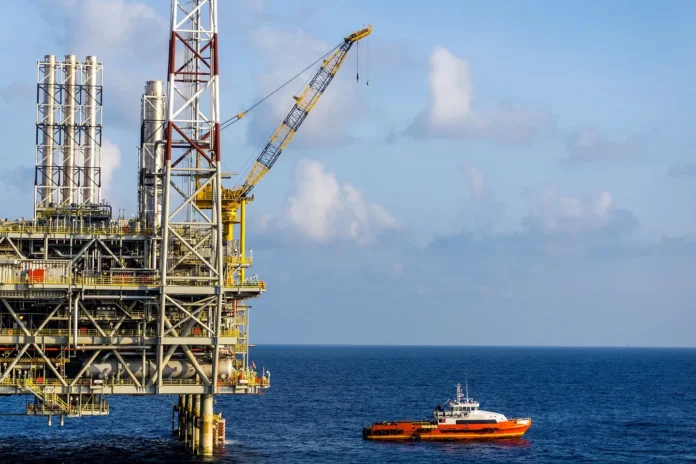In a significant diplomatic move, India’s Minister of External Affairs, Dr. S. Jaishankar, met with China’s State Councilor and Foreign Minister, Wang Yi, to discuss the longstanding “outstanding issues” along the Line of Actual Control (LAC). The meeting, held on the sidelines of the SCO Foreign Ministers’ meeting in Dushanbe, Tajikistan, aimed to address the unresolved border disputes between the two neighboring countries. As tensions continue to simmer, both sides expressed their commitment to finding a peaceful resolution.
Table of Contents
Reviewing the Complexities of the LAC Dispute:
The LAC, the de facto border between India and China, has been a source of contention for decades. The two Asian giants share a border that stretches over 3,488 kilometers, passing through challenging terrains and varying topography. Over the years, several rounds of talks and agreements have been conducted to find a mutually acceptable solution, but the resolution remains elusive.
Prioritizing Dialogue and Diplomacy:
Recognizing the importance of dialogue and diplomacy, Jaishankar and Wang Yi engaged in a comprehensive discussion during their meeting. Both diplomats emphasized the need to maintain peace and tranquility along the LAC while working towards a mutually agreed-upon border alignment. They acknowledged the significance of the previous agreements, including the 1993 Agreement on Maintenance of Peace and Tranquility along the LAC and the 2005 Agreement on Political Parameters and Guiding Principles.
Highlighting Progress and Challenges:
While progress has been made in certain areas, including the disengagement process in the Pangong Tso region earlier this year, challenges persist. The recent standoff in the eastern Ladakh region has strained bilateral relations, leading to casualties and increased military deployments. Both ministers recognized the need to build upon the existing confidence-building measures and explore new avenues for peaceful coexistence.
Strengthening Border Mechanisms:
Jaishankar and Wang Yi emphasized the importance of enhancing the existing border mechanisms to effectively manage and mitigate any future border incidents. They discussed reinforcing communication channels between the respective military commands, promoting greater trust and transparency, and implementing confidence-building measures to prevent misunderstandings and reduce tensions along the LAC.
Comprehensive Dispute Resolution:
The ministers underscored the significance of achieving a comprehensive resolution to the outstanding issues. They agreed that a mutually acceptable solution must be based on respect for each other’s sensitivities and concerns, without compromising national interests. They also acknowledged that an early settlement would not only benefit both countries but also contribute to regional stability and prosperity.
Exploring the Way Forward:
To pave the way for further progress, Jaishankar and Wang Yi reiterated their commitment to maintaining regular communication and dialogue. They agreed to convene the next round of the Working Mechanism for Consultation and Coordination on India-China Border Affairs (WMCC) at an early date. This meeting will provide an opportunity to delve deeper into the unresolved issues and explore concrete steps towards finding a mutually acceptable solution.
International Cooperation and Multilateral Platforms:
The meeting between Jaishankar and Wang Yi also highlighted the importance of multilateral platforms in fostering regional cooperation. Both diplomats expressed their commitment to leveraging platforms like the Shanghai Cooperation Organisation (SCO) to enhance trust, promote dialogue, and address common challenges faced by the region.
Regional Stability and Economic Cooperation:
The resolution of outstanding issues along the LAC between India and China is not only crucial for bilateral relations but also has wider implications for regional stability and economic cooperation. Both countries are major players in the Asian region and have the potential to contribute significantly to regional development. By resolving their border disputes, India and China can unlock the full potential of economic cooperation and trade, benefiting not only themselves but also neighboring countries.
The Role of Confidence-Building Measures:
Confidence-building measures play a vital role in reducing tensions and fostering trust between India and China. Over the years, various mechanisms have been put in place to promote transparency and predictability along the LAC. These include hotlines between the military commanders of both sides, flag meetings, and joint border patrols. Strengthening and effectively implementing these measures can help prevent incidents and manage any disputes that may arise.
Learning from Past Experiences:
The recent standoff in eastern Ladakh served as a reminder of the need for vigilance and caution in managing border situations. Both India and China have learned valuable lessons from this episode and have reiterated their commitment to avoiding any escalations. The two countries have a shared interest in maintaining peace and stability along their borders, which can only be achieved through peaceful dialogue and adherence to agreed-upon protocols.
Public Opinion and National Security Considerations:
The unresolved issues along the LAC have a significant impact on public opinion and national security considerations in both India and China. The border disputes have been a sensitive topic for both countries, often evoking strong sentiments among their respective populations. As such, any resolution must take into account the aspirations and concerns of the people while ensuring the long-term security interests of both nations.
The Role of International Community:
The international community has a vested interest in the peaceful resolution of the India-China border disputes. As two major powers in Asia, any escalation or conflict between India and China would have far-reaching implications for regional security and stability. The international community, including neighboring countries and global stakeholders, has consistently called for peaceful dialogue and a mutually acceptable resolution to the outstanding issues along the LAC.
Looking Ahead:
While the meeting between Jaishankar and Wang Yi is a positive step towards addressing the outstanding issues along the LAC, it is important to recognize that finding a lasting resolution will require sustained efforts and commitment from both sides. The complexities and sensitivities surrounding the border disputes cannot be underestimated, but with a genuine desire for peace and stability, a mutually acceptable solution can be reached.
Conclusion:
As India and China continue their efforts to address the longstanding issues along the LAC, the meeting between Jaishankar and Wang Yi signifies a renewed commitment to diplomatic engagement. While the road ahead may be challenging, sustained dialogue, trust-building measures, and a commitment to peace and stability are essential to finding a lasting resolution. The international community will be closely watching these developments, hoping for a peaceful resolution that promotes regional harmony and prosperity.








